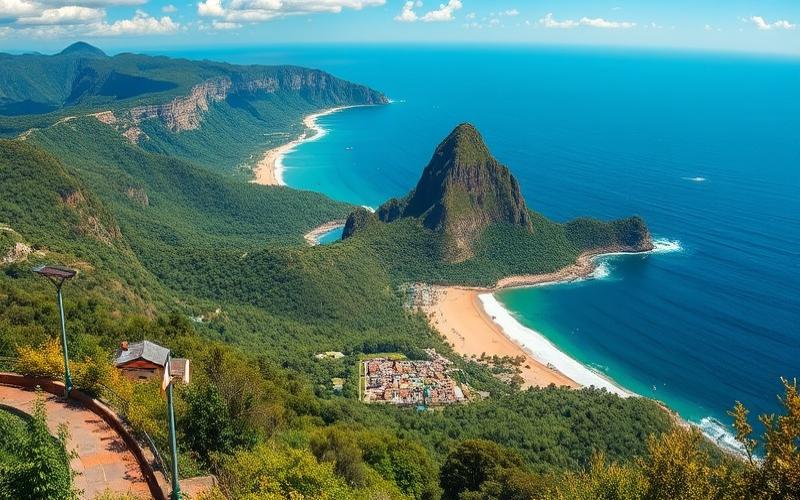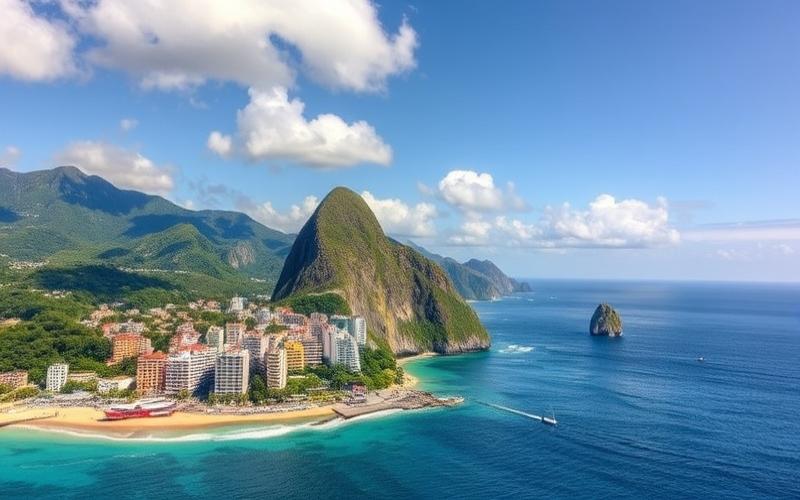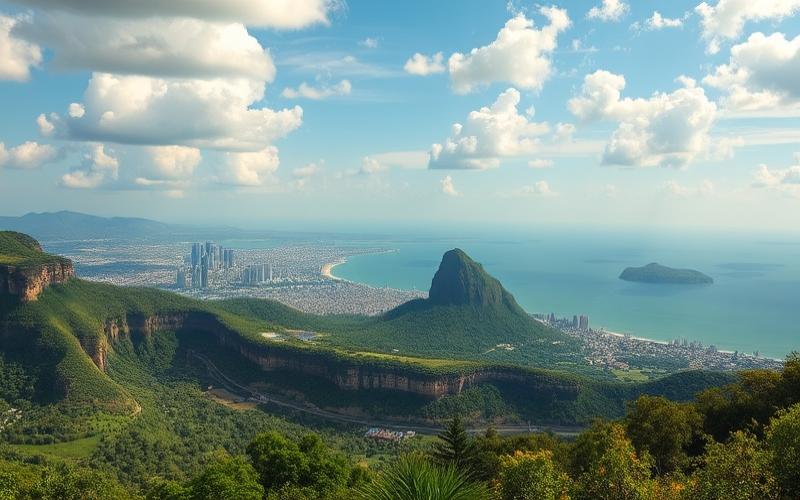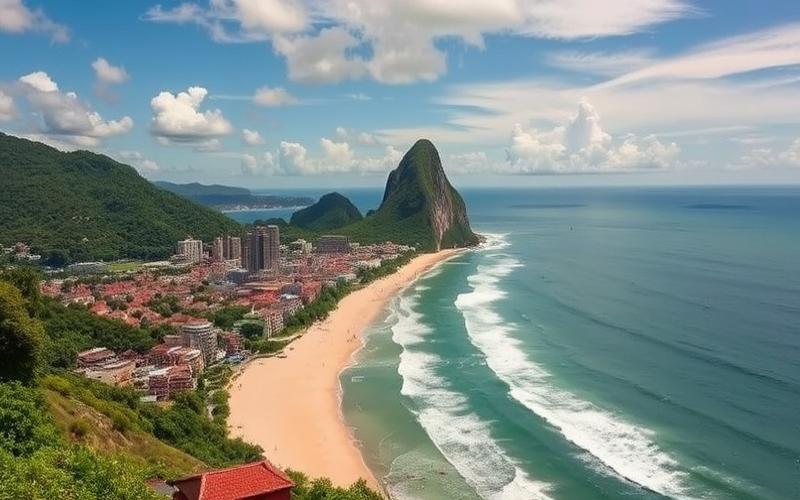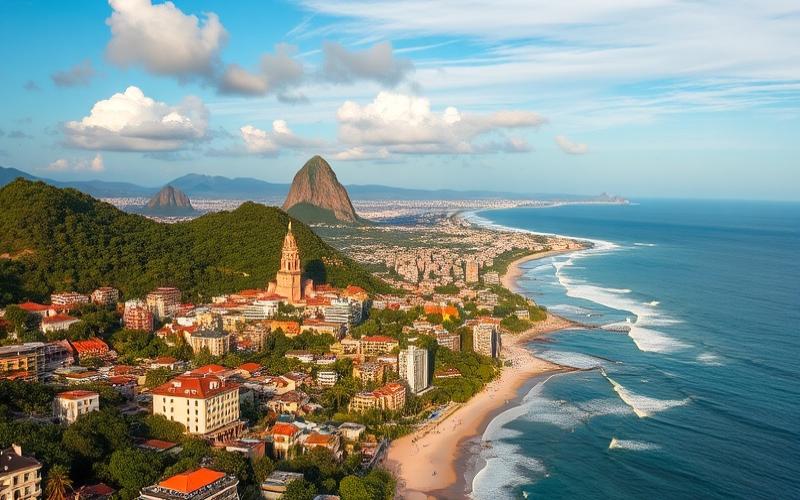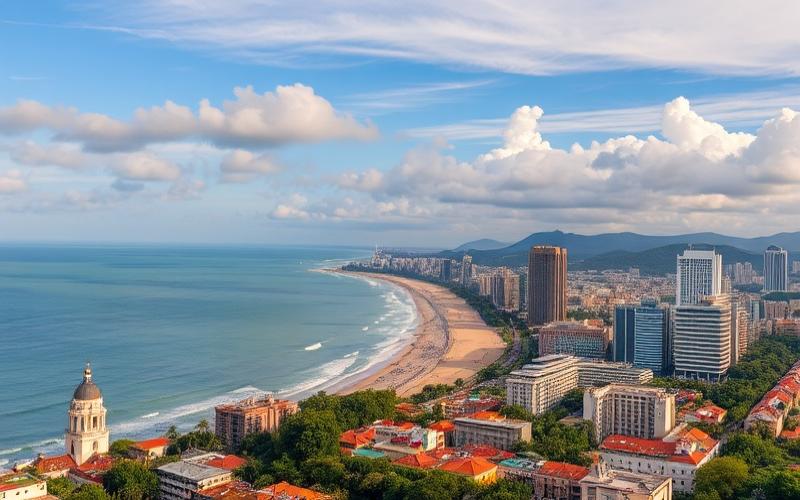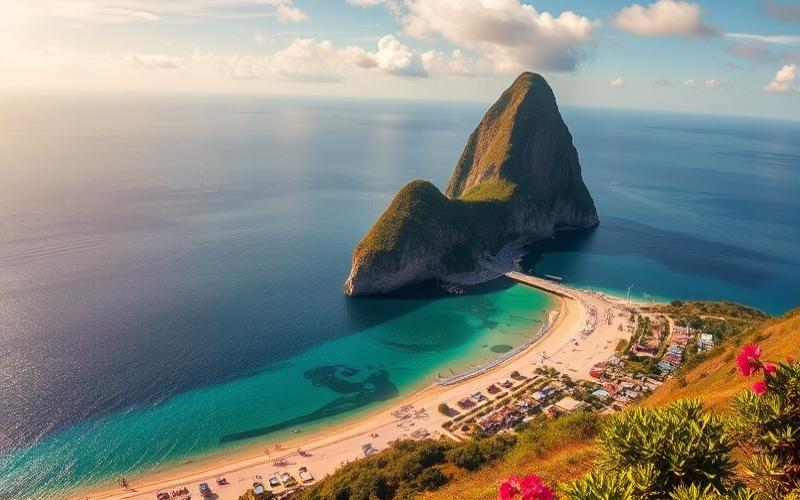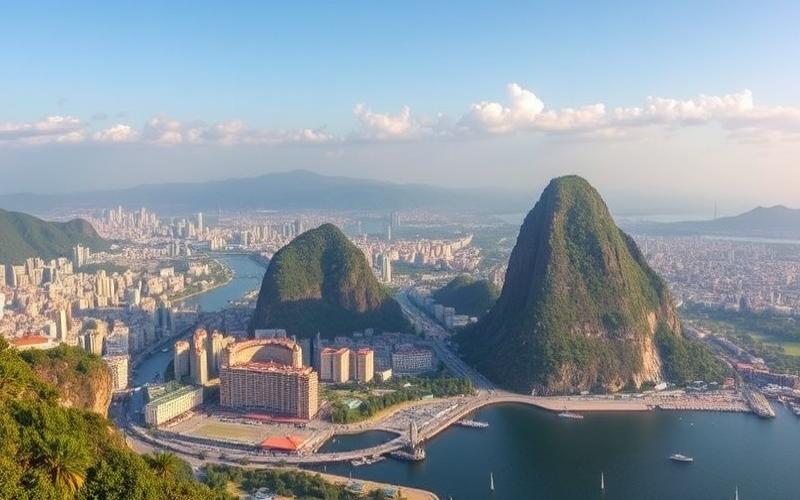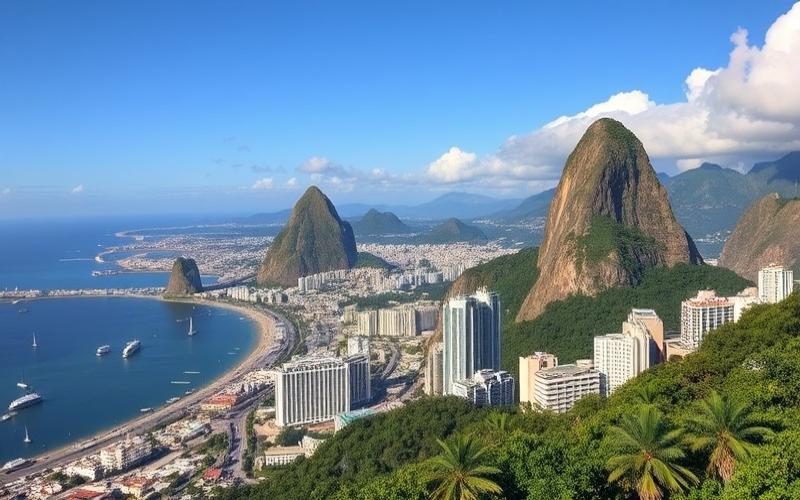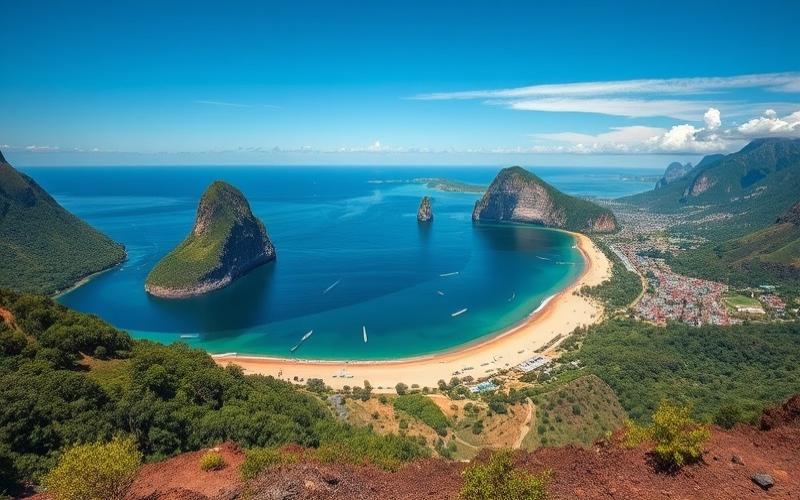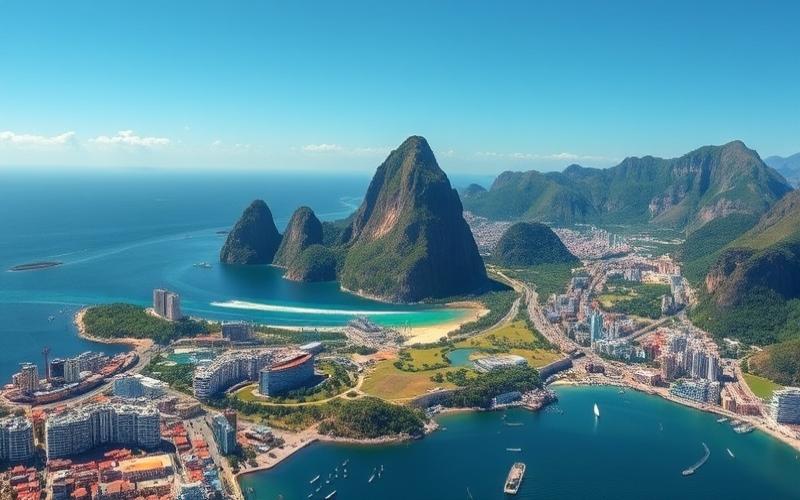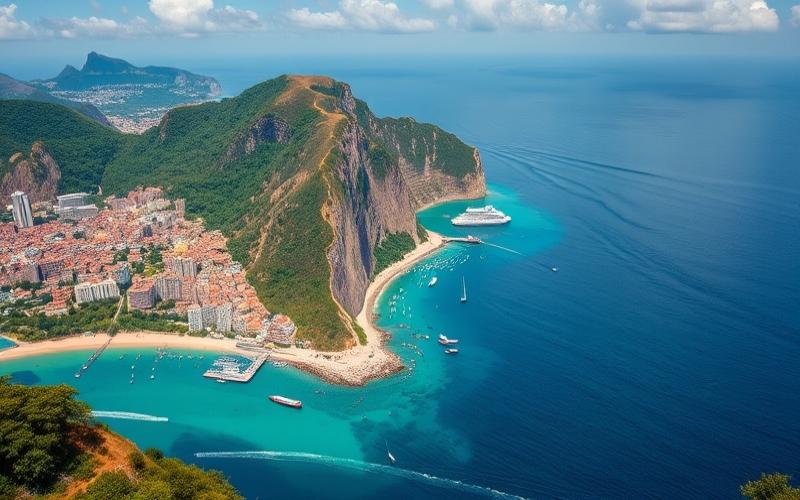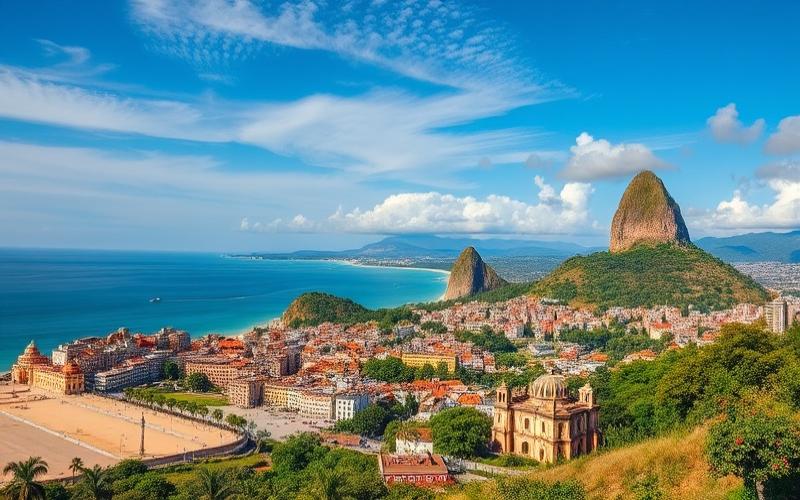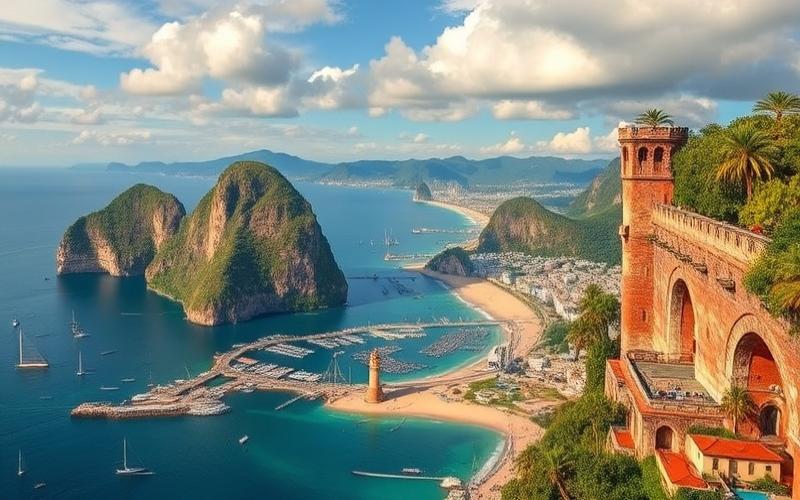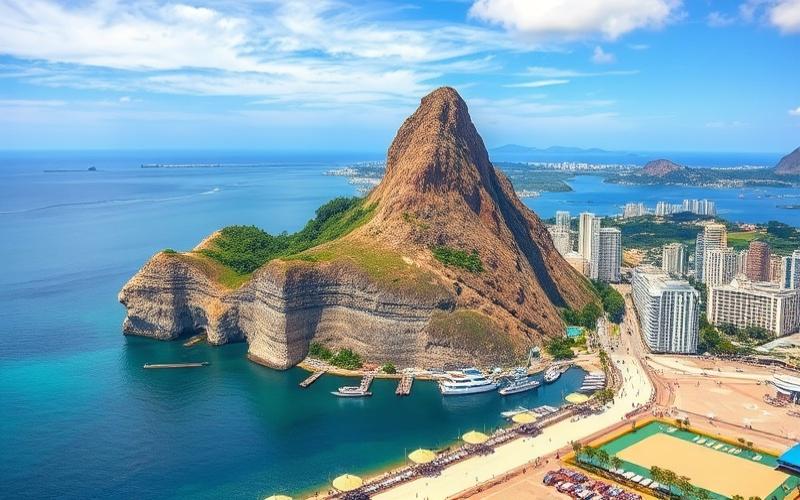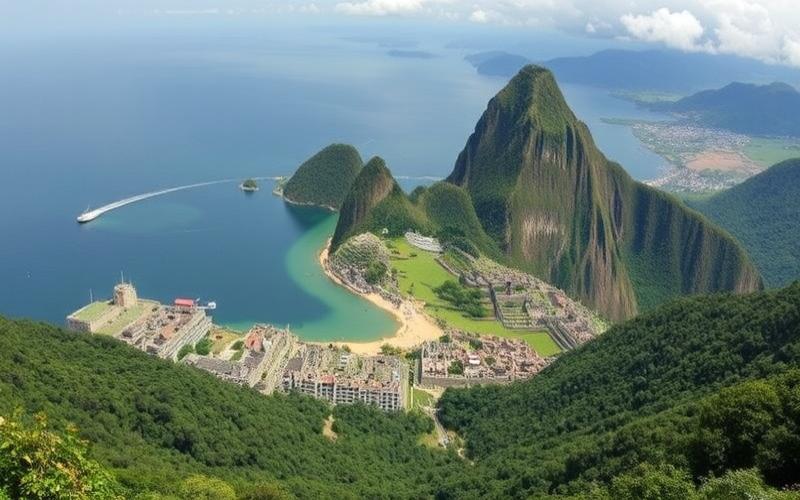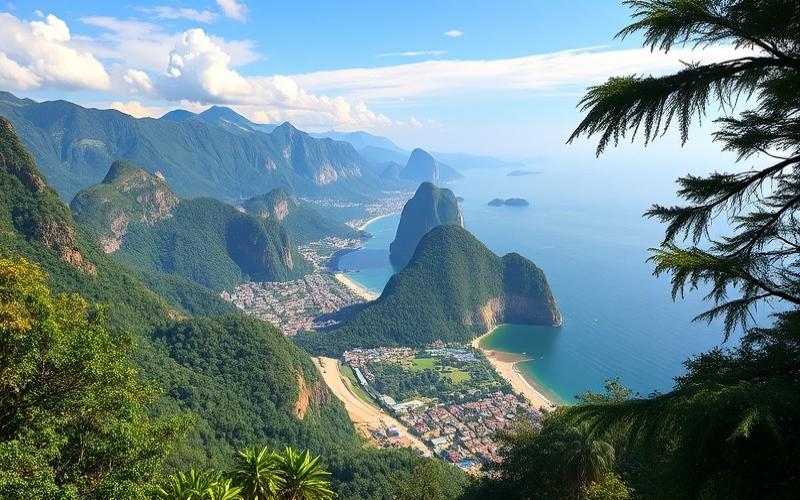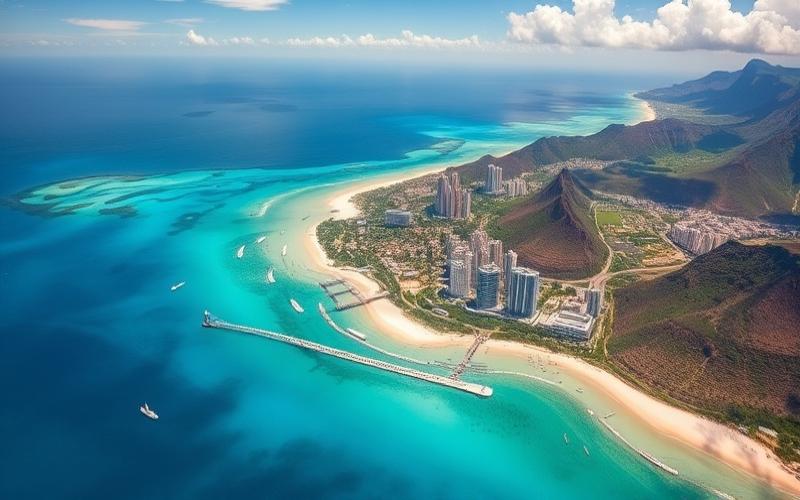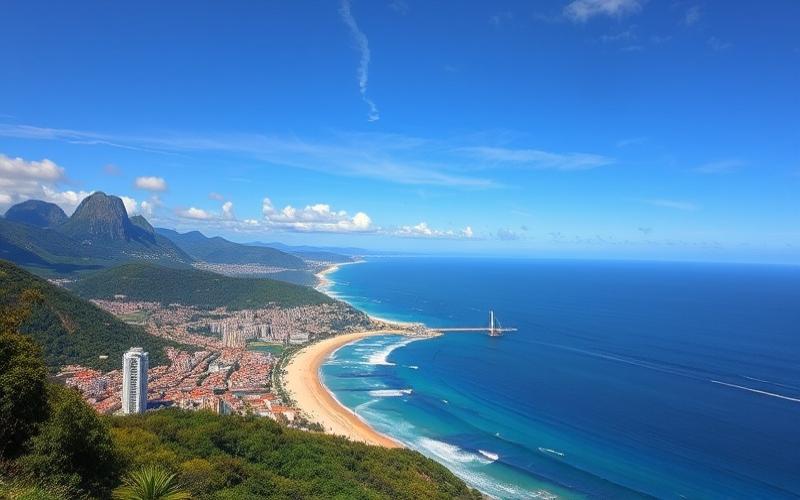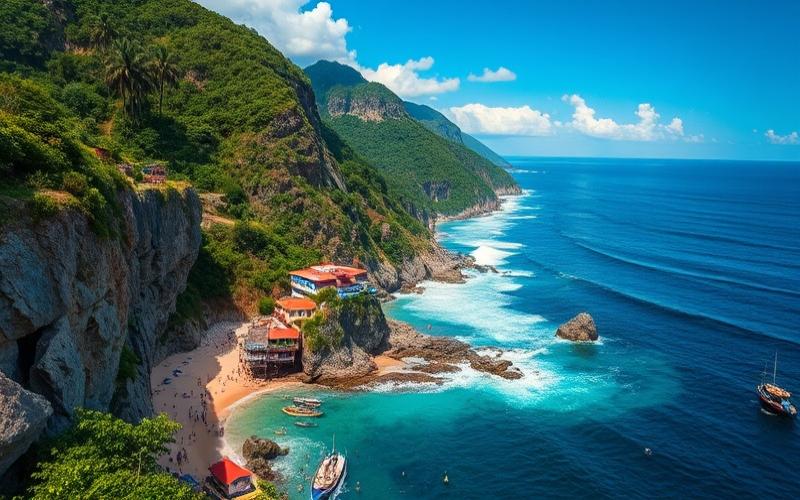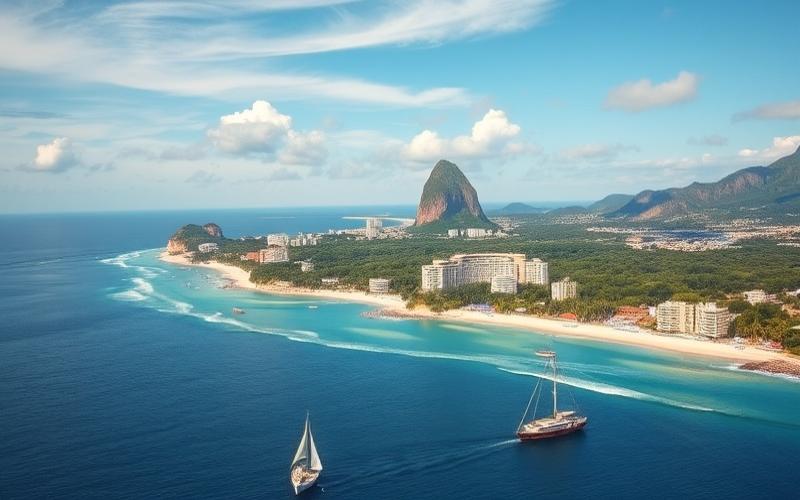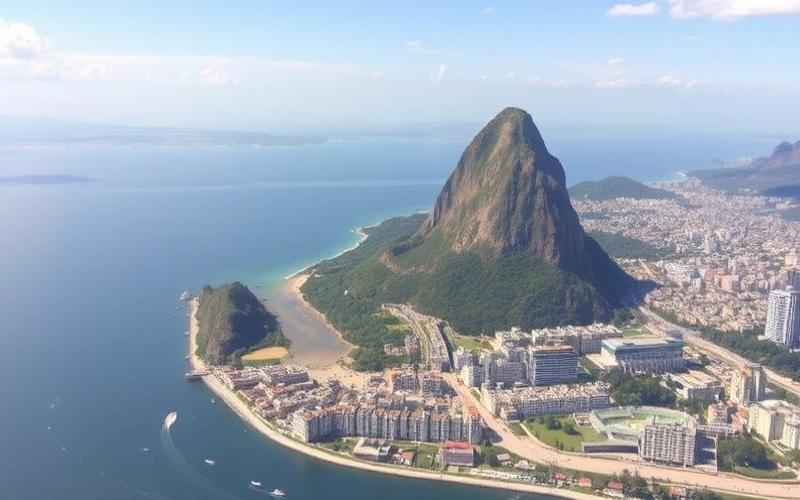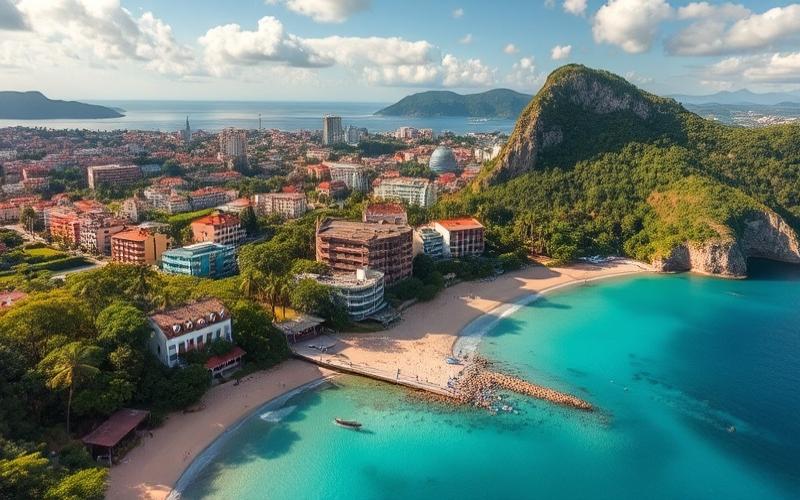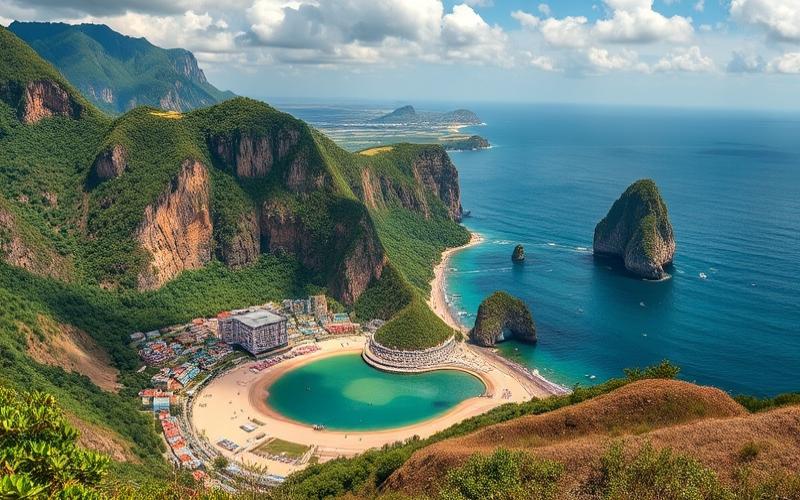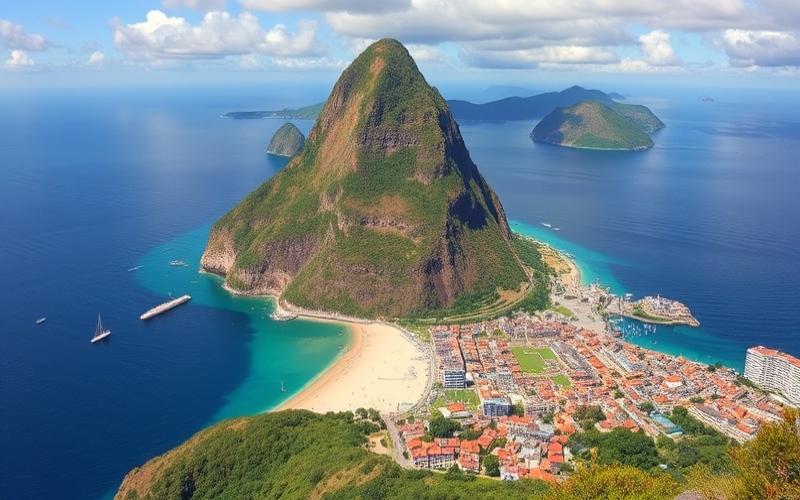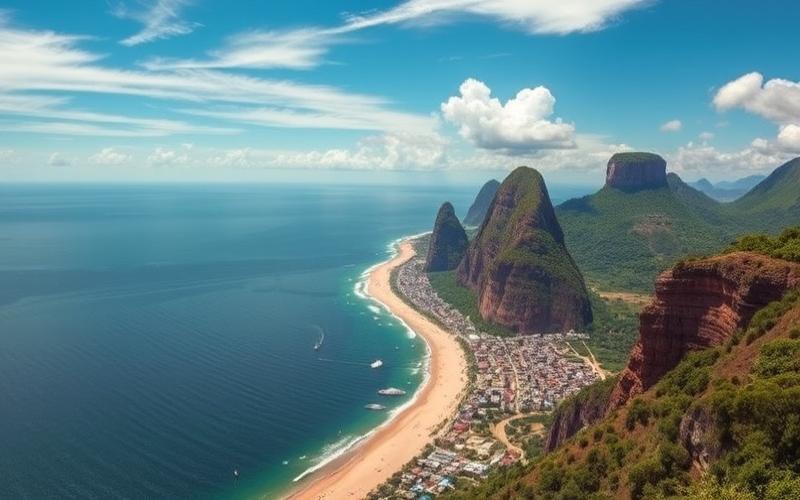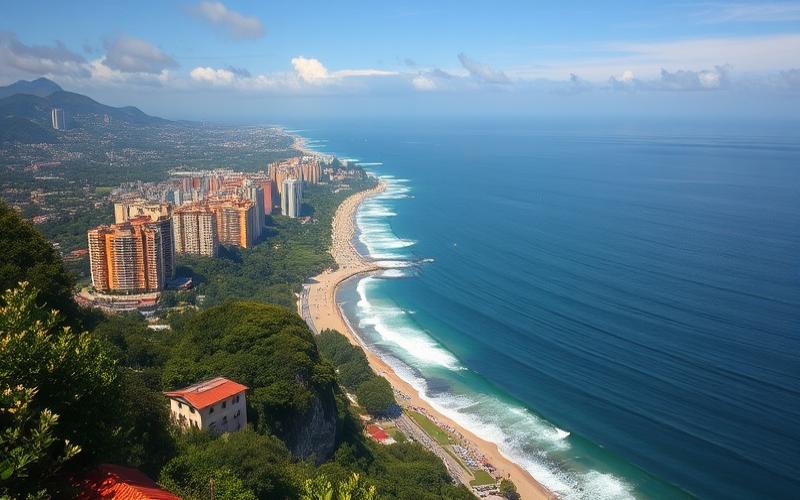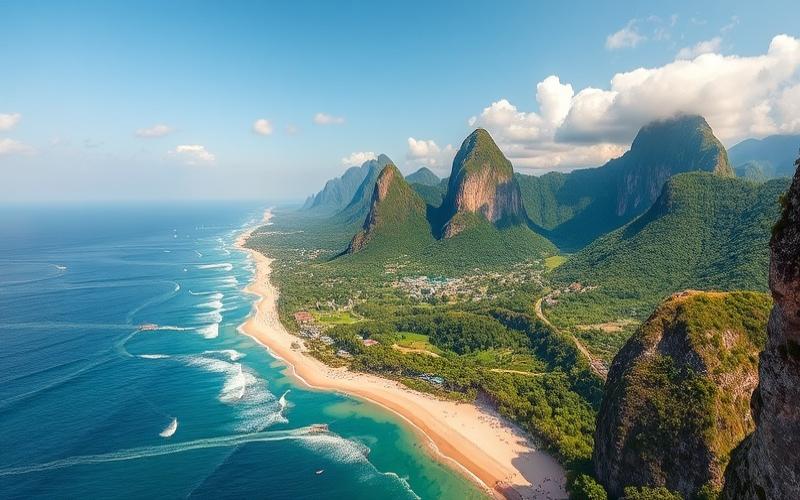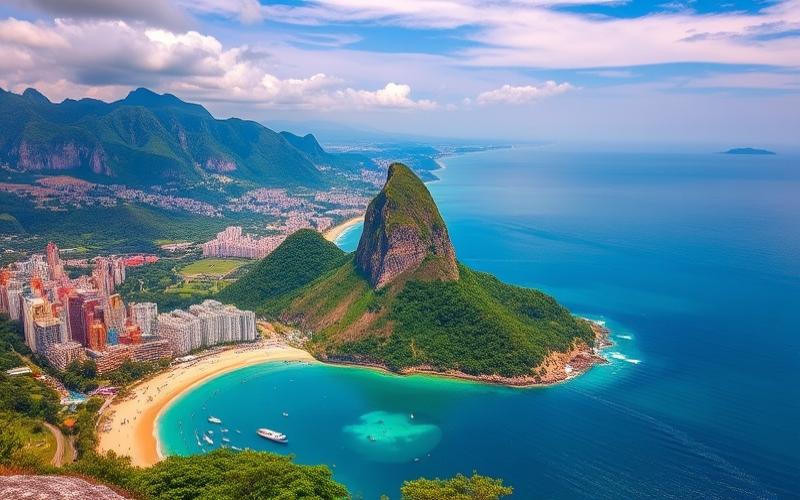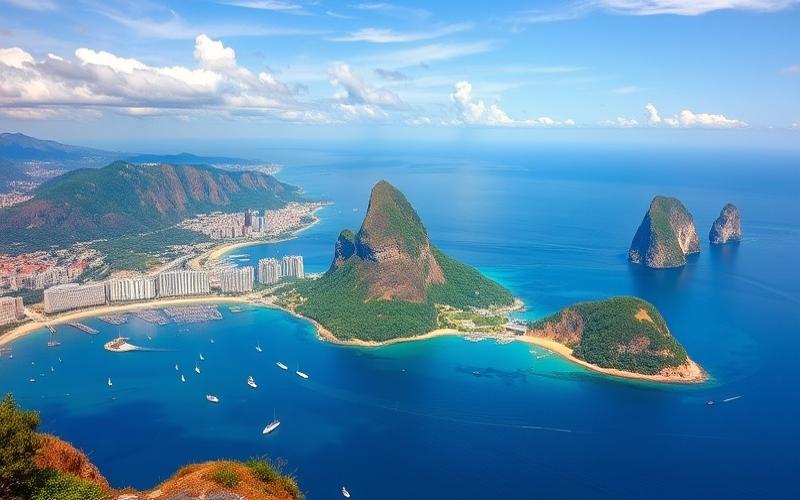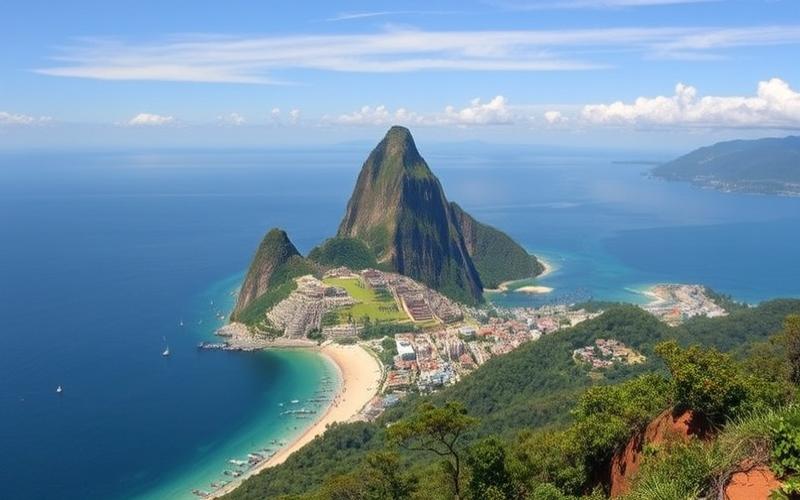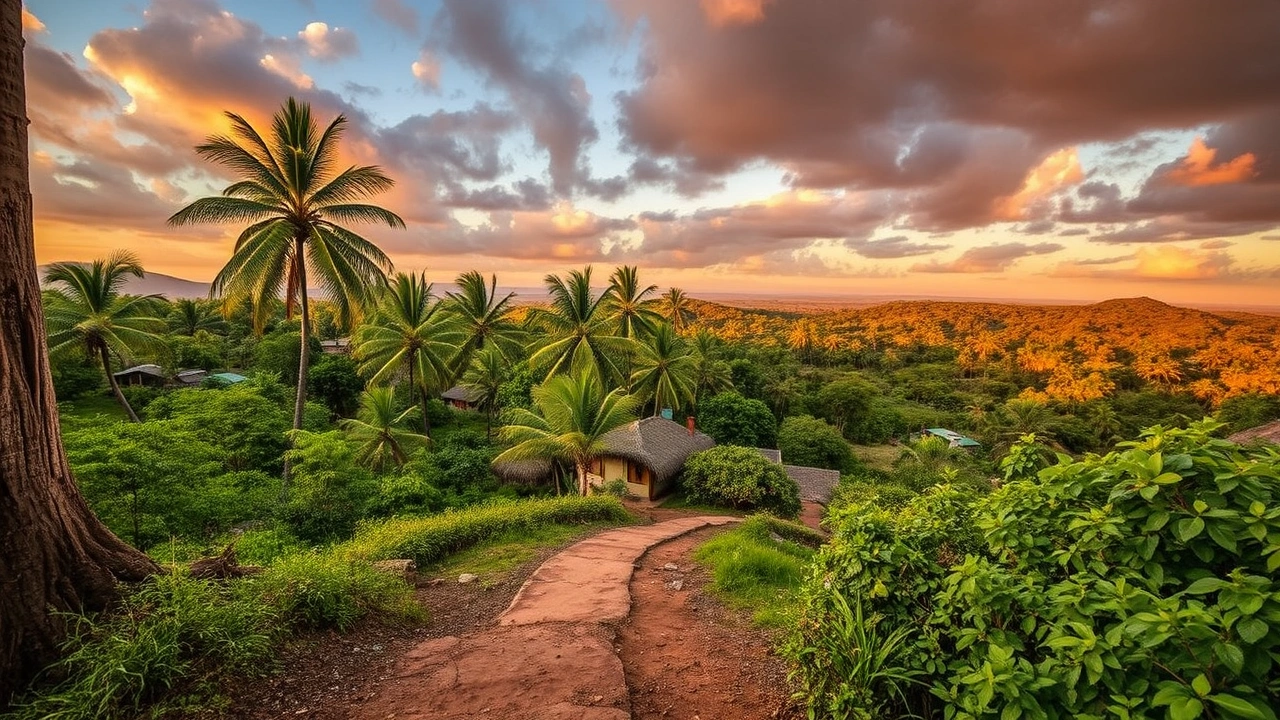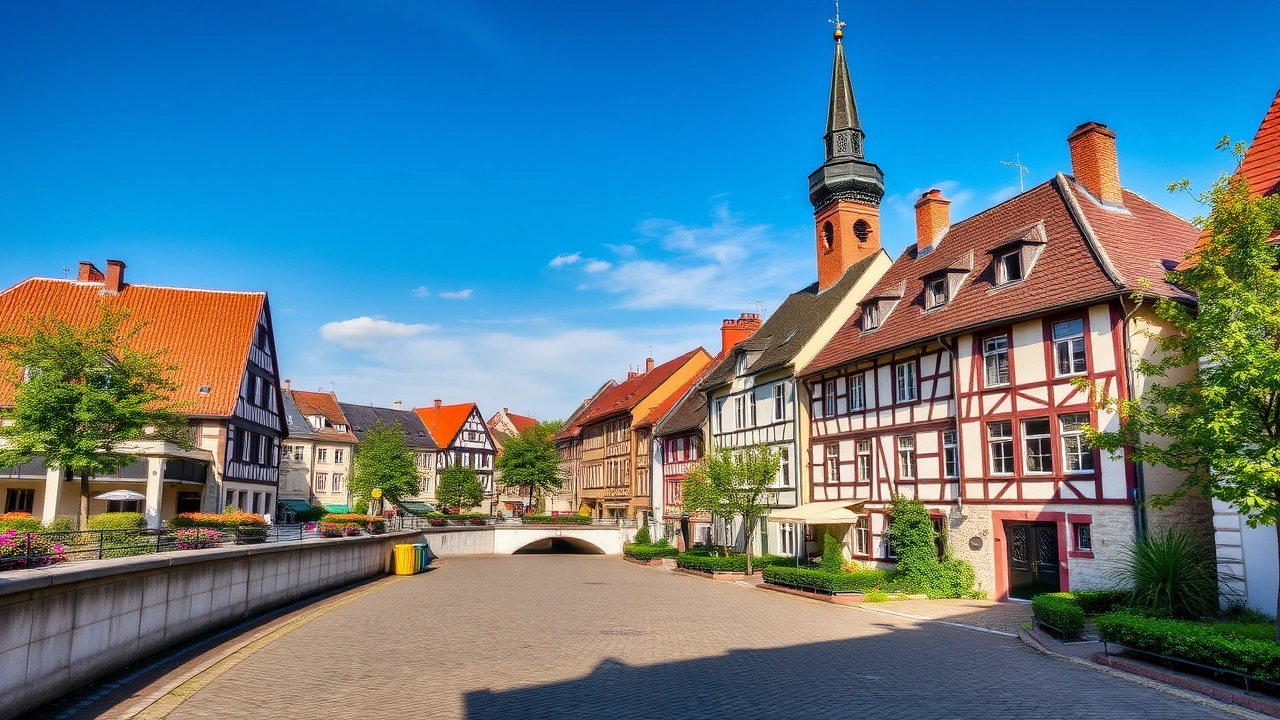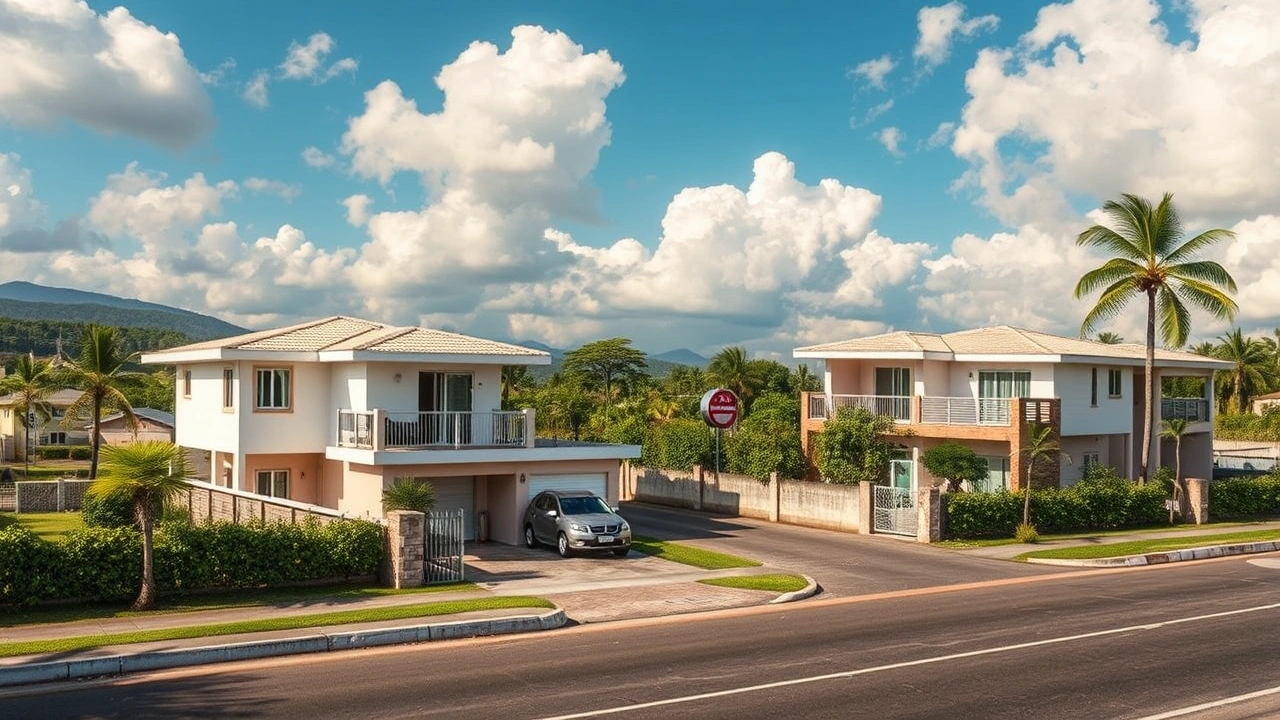
 Published on and written by Cyril Jarnias
Published on and written by Cyril Jarnias
Relocating to Brazil as an expatriate can be an exciting adventure, but it’s essential to understand the cost of living to better plan this new chapter.
Through its vibrant metropolises like São Paulo and Rio de Janeiro, the country’s economic diversity is reflected in prices that vary significantly from one region to another.
Compared to other popular expatriate destinations, Brazil often offers more affordable costs in certain sectors such as food and public transportation, while presenting surprises like housing-related expenses that can quickly climb in popular neighborhoods.
Learning more about these nuances will help you navigate this dynamic economic environment more smoothly and fully enjoy the Brazilian experience.
Understanding Daily Expenses in Brazil
| Expense Type | Major Cities (€/month) | Rural/Coastal Areas (€/month) | International Comparison |
|---|---|---|---|
| Housing | 350 – 500 | 150 – 300 | 2 to 3 times cheaper than France or USA (excluding major capitals) |
| Food | 125 – 145 | ~100 | 30 to 50% cheaper than Western Europe |
| Transportation | ~40 | ~25 | Similar to or lower than Spain, significantly less than USA |
| Utilities | 60 – 120 | 40 – 80 | Similar to Spain, cheaper than Germany |
| Entertainment | ~50 | ~30 | 20 to 40% cheaper than France, excluding very touristy outings |
Differences by City:
- São Paulo and Rio de Janeiro: Highest cost of living, particularly for housing and entertainment.
- Belo Horizonte, Porto Alegre, Recife: Less expensive, but with high levels of services and infrastructure.
- Coastal or Rural Towns: Significantly cheaper rents and food, more relaxed lifestyle.
Inflation and Exchange Rate (2025):
- Current exchange rate: 1 € ≈ 6.35 BRL.
- Annual inflation: Between 4 and 5% for food and rent in major cities, slightly lower elsewhere.
- Currency: High volatility, the Brazilian real has depreciated against the euro and dollar since 2023, making life cheaper for expatriates with foreign currency, but more expensive for those earning locally.
Practical Money-Saving Tips:
- Prefer feiras (open-air markets) for fruits, vegetables and fresh products: 20 to 30% savings compared to supermarkets.
- Choose long-term rentals outside city centers to significantly reduce housing costs.
- Use public transportation (buses, subway) and avoid taxis or private services in major cities.
- Prefer local small restaurants or home cooking: a complete lunch costs between €4.50 and €6.
- Use air conditioning moderately to limit electricity bills, especially in summer.
Cultural Differences Influencing Expenses:
- Local cuisine favors fresh products, beef and chicken, and high consumption of rice and beans.
- Brazilians frequently eat out, but prices remain very affordable due to the diversity of establishments (lanchonetes, pay-by-weight restaurants, street food).
- Carpooling or transportation apps like Uber are widely used, but the bus network remains the most economical solution.
- Entertainment is very focused on socializing, beaches, music and outdoor sports, allowing for free or low-cost activities.
Key Takeaways:
Brazil offers a very attractive cost of living for expatriates, especially outside major metropolitan areas, despite moderate inflation. Cultural differences and access to local products make it easy to optimize your budget.
Good to Know:
In São Paulo and Rio de Janeiro, costs are generally higher, but prioritizing public transportation or local markets can reduce your budget; current inflation and the real’s exchange rate require careful expense management.
Cost of Living Comparison with Other Countries
| Category | Brazil (national average) | France | United States | Australia |
|---|---|---|---|---|
| Housing | 300-600 €/month (downtown, furnished outside major metros), up to 1200 € in Rio/São Paulo | 800-1200 €/month (major cities) | 1500-2500 €/month (major cities) | 1400-2200 €/month (Sydney/Melbourne) |
| Food | 30-50 €/week (groceries), 5-10 € restaurant meal | 70-100 €/week (groceries), 12-20 € meal | 80-120 €/week (groceries), 15-25 $ meal | 90-130 €/week (groceries), 15-25 AU$ meal |
| Transportation | Bus ticket: 1.8 €, Taxi: 1.8 €/km, Gasoline: 0.9 €/L | Bus ticket: 2 €, Gasoline: 1.6 €/L | Bus ticket: 2.5-3 $, Gasoline: 0.95 €/L | Bus ticket: 3 AU$, Gasoline: 1.2 AU$/L |
| Healthcare | Private: consultation 20-40 €, insurance recommended | Public (Social Security) | Private, mandatory insurance, consultation 80-120 $ | Mixed system, Medicare, consultation 60-100 AU$ |
Indexes and Numerical Comparisons:
- Numbeo Index (2025): Brazil’s cost of living is 40-60 % lower than France, United States and Australia.
- Big Mac Index (2025): Brazil ≈ 3.30 US$, France ≈ 5.80 US$, United States ≈ 5.69 US$, Australia ≈ 4.90 US$.
- Purchasing Power: Cost is low but local purchasing power is 62 % lower than France.
Regional Differences in Brazil:
- Most Affordable Cities: Curitiba, João Pessoa, Belo Horizonte, Fortaleza.
- Expensive Cities: São Paulo, Rio de Janeiro (rents close to European standards for sought-after neighborhoods).
- Cost of living drops significantly in medium-sized cities or in the Northeast.
Cost Evolution Factors:
- Exchange Rate: 1 BRL ≈ 0.16 € (August 2025). Real fluctuations strongly influence expatriate budgets.
- Inflation: Prices of imported goods and fuel remain sensitive to local inflation, which has been notable over the past 12 months.
- Housing: The real estate market remains attractive for purchases, particularly in Rio and the Northeast.
Expatriate Testimonials:
“Living in Fortaleza allows me to have a large apartment for the price of a studio in Paris, and to enjoy local fresh products at lower cost. But the average salary is much lower, so you have to adapt your lifestyle.”
“In São Paulo, everything depends on the neighborhood. Business or tourist districts are expensive, but as soon as you move away from the center, housing and grocery costs drop significantly.”
“Private healthcare is accessible but you need to take out international health insurance, especially for families.”
Visual Summary:
| Country | Big Mac Index | Cost of Living (vs France) | Housing (€/month, downtown) |
|---|---|---|---|
| Brazil | 3.30 US$ | -43 % to -56 % | 300-600 (outside SP/RJ) |
| France | 5.80 US$ | 0 % (reference) | 800-1200 |
| United States | 5.69 US$ | +40-60 % | 1500-2500 |
| Australia | 4.90 US$ | +50-70 % | 1400-2200 |
Key Takeaways:
Brazil offers a significantly lower cost of living than Western countries for main expense categories, but gaps strongly depend on the city, lifestyle, exchange rate and inflation level. Expatriate experience highlights the importance of adapting your budget to local reality, particularly regarding housing and healthcare.
Good to Know:
The cost of living in Brazil is generally lower than in the United States, France or Australia, particularly regarding housing and food, but it’s important to consider significant regional variations and the potential impact of exchange rate fluctuations. For example, according to the Numbeo index, living in São Paulo can cost significantly less than in Sydney, but expatriate testimonials emphasize that private healthcare can be more expensive than expected.
Monthly Budget: How Much to Plan for Relocation?
| Expense Category | Major Cities (São Paulo, Rio) (€ / month) | Rural Areas or Small Towns (€ / month) |
|---|---|---|
| Housing | 350 – 500 | 150 – 300 |
| Food | 125 – 145 | ~100 |
| Transportation | ~40 | ~25 |
| Healthcare | 50 – 150 (private insurance recommended) | 30 – 80 |
| Entertainment | ~50 | ~30 |
| Utilities | 60 – 80 (water, electricity, internet) | 40 – 60 |
Example monthly budget for one person:
- Major cities: approximately 754 €
- Rural areas: approximately 350 – 500 €
Details by Expense Category:
- Housing: Downtown rents (1-bedroom apartment) range between 350 and 500 € in major cities, but sometimes drop below 150 € in rural areas or small towns. Real estate purchases remain affordable outside metropolitan areas.
- Food: An average grocery basket costs 125 to 145 € per month in cities, with lower prices in the countryside. Eating out costs about €4.70 for a simple meal.
- Transportation: Monthly public transportation passes are about 40 € in cities, and 25 € in less urbanized areas.
- Healthcare: Access to the public system (SUS) is free but limited; private health insurance is highly recommended, with monthly rates of 50 to 150 € depending on age and coverage.
- Entertainment: Budget about 50 € per month for outings (movies, occasional restaurants), less in small towns.
- Utilities: Electricity, water, gas, internet and phone cost between 60 and 80 € per month in major cities, slightly less elsewhere.
Impact of Exchange Rate and Inflation:
The Brazilian currency, the Real (BRL), is subject to strong fluctuations against the Euro and Dollar. A depreciation of the Real can reduce the cost of living for expatriates paid in foreign currency, but local inflation (particularly food and energy) can cancel out part of this gain.
Inflation in Brazil is historically unstable, which can lead to significant short-term price variations, particularly on imported products and indexed rents.
Differences by Lifestyle:
- A “European” lifestyle (modern housing, entertainment, frequent outings) costs significantly more than the local lifestyle.
- Savings are notable compared to France, Portugal or the United Kingdom, with a 40 to 60% lower cost of living for most categories.
- It’s possible to live comfortably with a moderate budget in rural or coastal regions, especially for retirees or remote workers.
Potential Savings (France/Brazil Comparison):
| Country | Monthly Budget (1 person) | Family Budget (4 people) |
|---|---|---|
| Brazil | ~754 € | ~2,205 € |
| France | ~1,710 € | ~4,766 € |
The cost of living in Brazil remains significantly lower than most European countries, but it strongly depends on the city, lifestyle and evolution of the exchange rate.
Good to Know:
Budget 900 to 1,500 € per month for housing, 200 to 350 € for food, and 50 to 100 € for transportation, considering higher prices in São Paulo and Rio de Janeiro and possible savings in rural areas; be aware of exchange rate fluctuations and inflation that can impact your monthly expenses.
Disclaimer: The information provided on this website is for informational purposes only and does not constitute financial, legal, or professional advice. We encourage you to consult qualified experts before making any investment, real estate, or expatriation decisions. Although we strive to maintain up-to-date and accurate information, we do not guarantee the completeness, accuracy, or timeliness of the proposed content. As investment and expatriation involve risks, we disclaim any liability for potential losses or damages arising from the use of this site. Your use of this site confirms your acceptance of these terms and your understanding of the associated risks.

